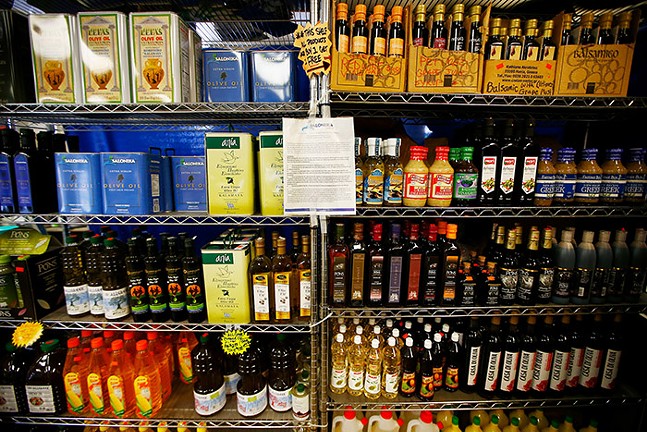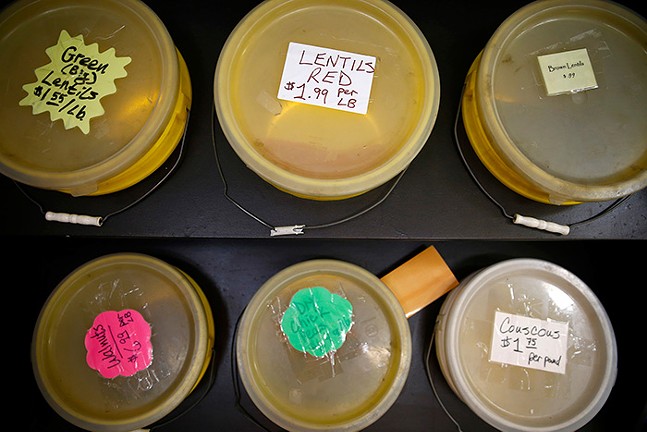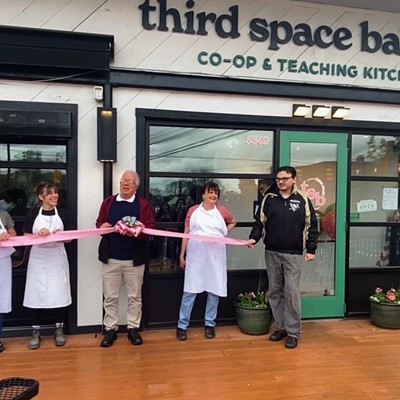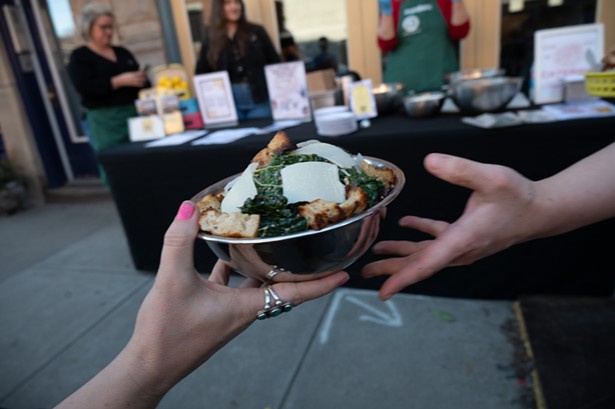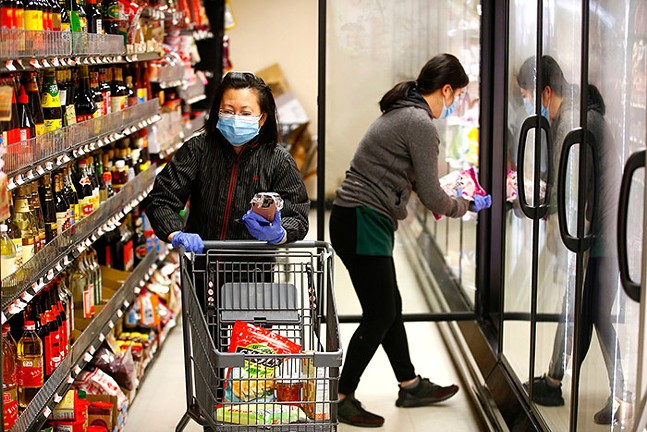
Meanwhile, small markets and grocery stores remained quietly stocked.
“I think a lot of people don’t realize how much food’s here. And good food,” says Nicola Dicio, owner of Reyna Foods, speaking to the row of shops in the Strip District. “Penn Mac is stocked. Stamoolis is stocked. The meat markets, the produce markets, the Asian markets, they’re all full of food. It’s not like you walk into a supermarket and the shelves are cleaned up.”
Pittsburgh’s small grocers have been adapting quickly to the pandemic, staying open despite low traffic. Chris Balouris, owner of Salonika Imports in Lawrenceville, has added inventory — paper goods like toilet paper, tissues, and paper towels along with fresh produce and eggs — to his retail storefront to meet the needs of his neighborhood.
Reyna Foods is ramping up and expediting production from its 50-acre farm in Allison Park, giving shoppers access to a wider range of produce. Dicio says he’s planting tomatoes, peppers, potatoes, onions, cauliflower, broccoli, asparagus, strawberries, greens, peas, and more.
Many have taken safety precautions — no small feat for a tiny grocery — to better serve their shoppers. With the aid of the health department, the Mediterranean bakery Pitaland put its staff through a coronavirus safety training. They’re wiping down surfaces every 15 minutes, checking out one person at a time, and offering curbside pickup.
Panda Supermarket in Squirrel Hill has altered its entire business to operate by delivery and pickup orders only. Customers order through Facebook messenger or WeChat app, then employees do the shopping, masked and gloved.
“Before [the outbreak], it was really busy,” says Shelley Fan, one of the owners of the Asian supermarket. “But because of the difficult time, with the pickup, we cannot handle a lot of people.” Fan says they’re taking in about a third of their usual traffic.
Sourcing goods is another obstacle for these small markets. Products stocked in these global grocers are often supplied from out-of-state manufacturers. Balouris luckily received a shipment before the height of the pandemic; Fan is not so fortunate. Dewakar Nupal, son of the owner of Indian supermarket Bombay Food Market on Centre Avenue, says some shipments are being stopped from New York, and other suppliers are raising prices.
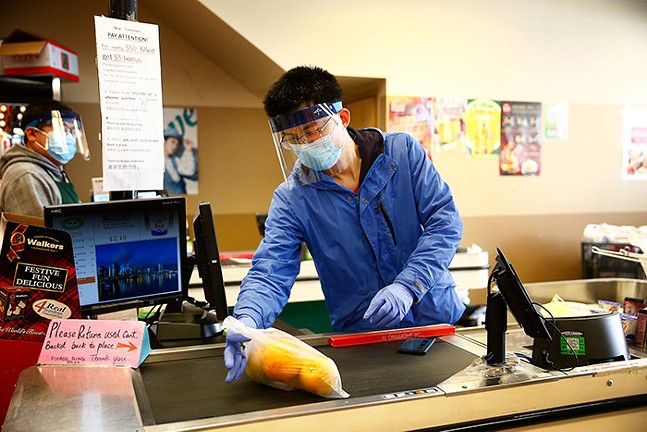
But even with their adaptive efforts, all of these family-owned and small markets are suffering from low patronage, which poses the question: Can they survive the outbreak?
“We can’t make money,” Fan says. “[We are paying] double salary to the employees. We cannot close; we’re a grocery store. If we close, all the students around us can’t find [food].”
Balouris says he considers closing every day, not for financial reasons, but for safety. Though the majority of his business — similar to that of Reyna Foods and Pitaland — comes from wholesale orders, he’s thankful for the stream of revenue coming from the retail store and takeaway food.
“We are blessed in that we bake bread everyday,” says Donna Chahine Tweardy of Pitaland. “We are blessed to have traffic with the grocery store, but it’s very slow.”
The Mediterranean store and wholesaler reopened the cafe after closing for just one week because operating without it “was really bad.”
“Right now we’re open,” Tweardy says. “Can we make it to the end of the month? Probably. But after that I really couldn't say.”
Nupal contemplates closing Bombay Food Market daily, saying he’s just “waiting for the tipping point.” Like Balouris, he’s basing this decision on safety. However, with no wholesale or restaurant to fall back on, Nupal doesn’t know if the Indian market will be able to reopen.
“That’s the thing.” he says. “We still have to pay rent.”
Reyna Foods. 2031 Penn Ave., Strip District; Pitaland. 620 Brookline Blvd., Brookline. pitaland.com; Salonika Imports. 3509 Smallman St., Lawrenceville. salonika.net; Bombay Food Market. 4605 Centre Ave., North Oakland. abombay.com; Panda Supermarket. 5846 Forbes Ave., Squirrel Hill.

